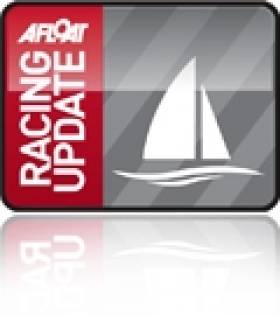Displaying items by tag: RC Laser Class
Large Turnout Expected for RC Laser Event
#MODEL YACHTS – A large turnout is expected at the RC Laser Sailing Club racing this Sunday from 2pm at the National Yacht Club, Dun Laoghaire. Eight boats are already signed up for the model racing fixture that starts from the club pontoon.
Irish RC Laser Class
Whether you are brand new to sailing, new to model sailing, an old salt, or a championship match-racing sailor, the RC Laser is the boat for you.
Sail almost anywhere – The RC Laser has a 16" keel. So anywhere you find knee-deep water, she will sail. Sail in the ocean, a pond or lake, a river or stream – or in your swimming pool, it makes no difference. The RC Laser sails beautifully in conditions from a zephyr up to 35 knots of wind – no joke!
Pedigree – The RC Laser is the design of world famous sailor and yacht designer Bruce Kirby. Of all his creations, the one-man Laser is the best known. Over 174,000 have been built to date, making the Laser the most popular racing class of all time, and an Olympic Class.
The RC Laser is a quarter scale model of that Laser with certain modifications for model performance – all carefully designed and tested by Bruce Kirby and Jon Elmaleh – another world class sailor.
This means the RC Laser has a pedigree, is proven and tested. It is not a toy designed by a toy company. When you sail this boat, the right things happen. If you make a mistake, it bails you out and keeps on sailing. You don't need to worry about breaking the boat, and you won't be disappointed with how well she sails.
An equal opportunity sailboat – the RC Laser is for kids, for adults, for seniors, even for the physically handicapped. She is the boat of choice for sailing schools and rental fleets because she is practically indestructible and very easy to handle. Plus she is a true one-design for competitive sailors that want to go for the gold.
RC Laser sailors do have more fun! – it's true. RC Lasers are such reliable boats, you will be sailing when others have their boats ashore for repairs or adjustments. While you sail with the kids, others will be hiding their boat from their kids. Toughness, reliability, simplicity, and all weather capability means more fun!
No add-on expenses – The RC Laser comes complete so there are no hidden expenses. You even get four different color rolls of vinyl tape for your own creative boat markings.
We do offer a few accessories that folks have asked for, like a carrying bag, a folding cradle, and a rechargeable battery system. But the bottom line is, all you really need is 12 AA batteries for your radio control equipment and you are ready to sail right out of the box. Isn't that great?
(The above information courtesy of the Irish RC Laser Class).
Irish RC Laser Class c/o Roger Bannon, President, Valentia, 36 Castlepark Road, Dalkey, Co. Dublin. Tel: 01 235 1812/087 650 4925, email: [email protected] or [email protected]
There is a space for Irish boating clubs and racing classes to use as their own bulletin board and forum for announcements and discussion. If you want to see a dedicated forum slot for your club or class, click here






























































